Ensuring legal compliance in property management within Palm Beach County is vital for landlords and property managers to safeguard their investments, maintain tenant trust, and avoid costly legal ramifications. With a web of federal, state, and local regulations to navigate, understanding key compliance areas and implementing best practices is essential. This guide provides an in-depth overview to help property managers maintain compliance and streamline operations.
Why Legal Compliance in Property Management is Essential
Adhering to Compliance in property management laws goes beyond avoiding penalties—it builds credibility, fosters tenant satisfaction, and ensures long-term operational success. Key benefits include:
- Mitigating Legal Risks: Stay ahead of potential legal disputes and penalties.
- Strengthening Tenant Relations: Fair and transparent practices promote tenant loyalty.
- Enhancing Operational Stability: Reduce disruptions with well-defined processes.
Comparing Compliance Outcomes:
| Aspect | Non-Compliant Management | Compliant Management |
|---|---|---|
| Tenant Retention Rates | Low | High |
| Legal Costs | High | Minimal |
| Efficiency | Inefficient | Streamlined |
Core Areas of Legal Compliance
1. Fair Housing Laws
Federal and Florida state fair housing laws strictly prohibit discrimination in housing-related activities. Key requirements include:
- Using uniform tenant screening criteria.
- Avoiding discriminatory language in marketing materials.
- Providing reasonable accommodations for individuals with disabilities.
2. Lease Agreements
Lease agreements are legal documents that outline the responsibilities of both landlords and tenants. Ensure they:
- Clearly define terms such as rent, security deposits, and maintenance obligations.
- Align with Florida landlord-tenant statutes.
- Include clauses for handling disputes and lease termination.
3. Handling Security Deposits
Florida law regulates how landlords manage security deposits. Requirements include:
- Depositing funds into a separate interest-earning or non-interest-earning account.
- Providing written notifications of deposit details.
- Returning deposits within 15-30 days after lease termination, less permissible deductions.
4. Eviction Processes
Evictions must be conducted lawfully to avoid tenant claims of wrongful eviction. Steps include:
- Issuing formal notices, such as a 3-day notice for unpaid rent.
- Filing an eviction lawsuit if the tenant fails to comply.
- Following due process to regain possession of the property.
5. Property Maintenance and Safety
Landlords are required to provide a safe and habitable living environment. Ensure:
- Adherence to local building and safety codes.
- Prompt repairs of structural and utility-related issues.
- Routine inspections to identify and address hazards proactively.
Strategies for Maintaining Legal Compliance in Property Management
1. Engage Legal Counsel
Collaborate with a property management attorney to:
- Draft and review lease agreements.
- Stay informed on regulatory changes.
- Address disputes and legal proceedings effectively.
2. Implement Property Management Software
Streamline compliance tasks using technology that:
- Tracks maintenance requests and resolutions.
- Automates rent collection and late payment notices.
- Stores tenant communications and legal documents securely.
3. Educate Staff
Regular training sessions for property management teams ensure:
- Familiarity with fair housing laws and tenant rights.
- Understanding of Florida’s security deposit and eviction protocols.
- Consistent application of compliant practices.
4. Maintain Accurate Records
Comprehensive documentation protects against legal disputes. Keep records of:
- Tenant applications and lease agreements.
- Maintenance activities and repair invoices.
- Communication logs, including emails and formal notices.
Case Study: Compliance in Action
Challenge: A Palm Beach Gardens property owner faced multiple tenant disputes due to unclear lease terms and inconsistent maintenance practices.
Solution: Partnering with Atlis Property Management resulted in:
- Legally updated lease agreements to clarify tenant and landlord responsibilities.
- A digital platform for tracking maintenance requests and resolutions.
- Staff training on fair housing and local landlord-tenant laws.
Outcomes:
- Tenant satisfaction increased by 30%.
- Legal disputes reduced to zero within a year.
- Operational efficiency improved by 40%.
Resources for Property Owners
- Learn about tenant screening solutions to ensure fair and consistent practices.
- Discover legal lease drafting services tailored for compliance.
- Explore maintenance strategies for safety and habitability.
The Advantages of Compliance
| Benefit | Non-Compliant Practices | Compliant Practices |
| Legal Costs | High | Reduced |
| Reputation | At Risk | Enhanced |
| Tenant Turnover | High | Low |
| Operational Efficiency | Chaotic | Organized |
Conclusion
Legal compliance in property management is essential for avoiding disputes, ensuring tenant satisfaction, and securing long-term success. By leveraging expert advice, modern technology, and proactive strategies, property owners in Palm Beach County can confidently manage their investments. Atlis Property Management provides tailored solutions to help you stay compliant and profitable.
Contact Atlis Property Management today for expert assistance in managing compliance. Visit atlispm.com for more information.



